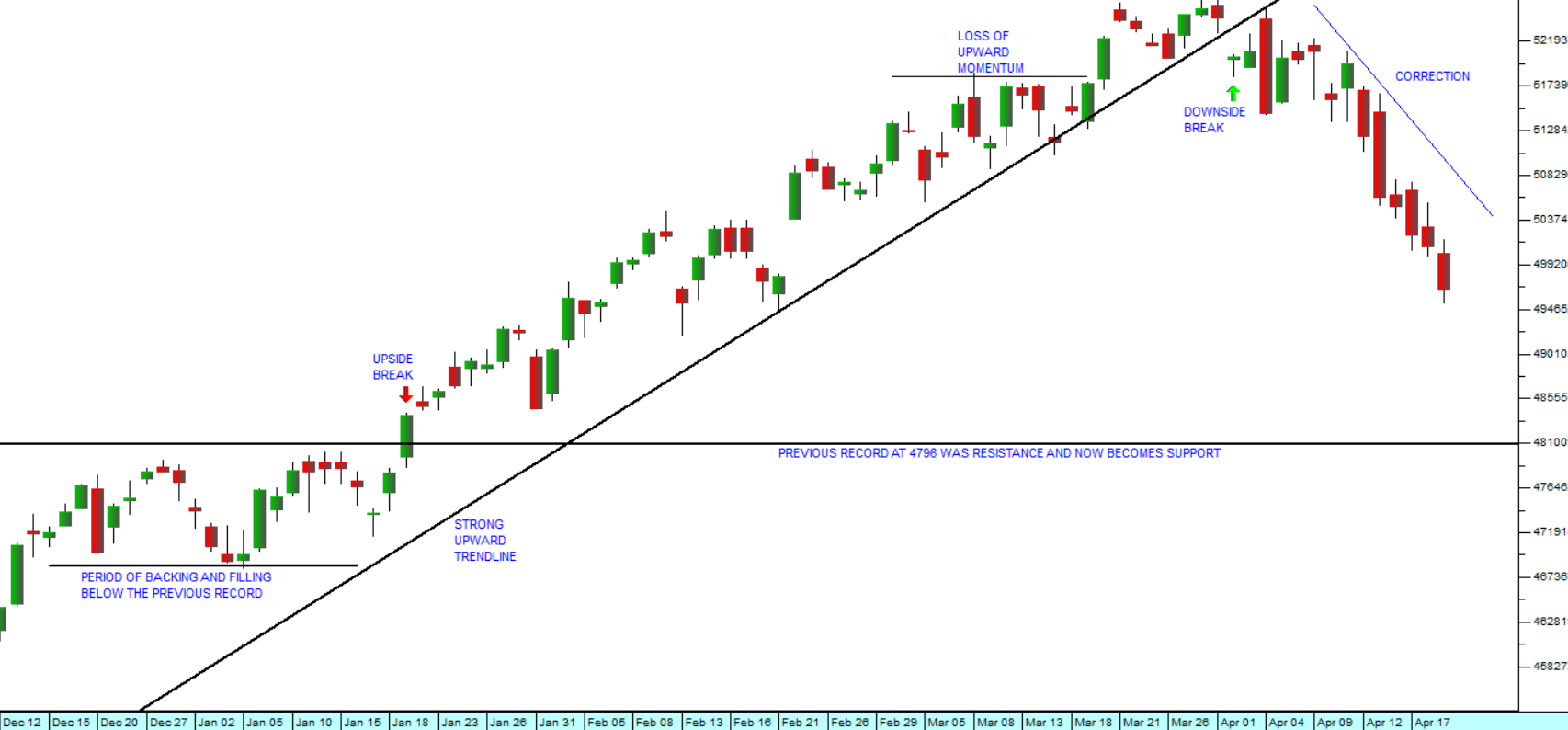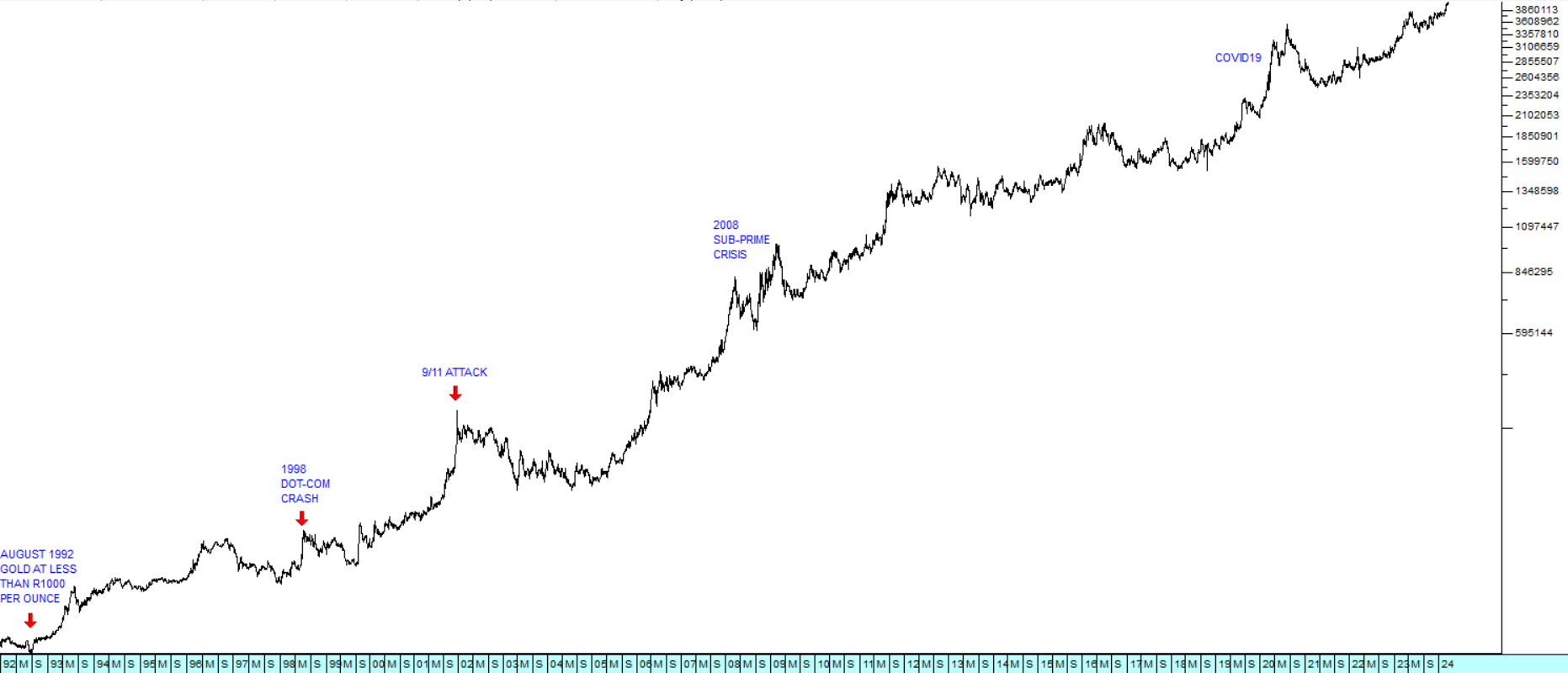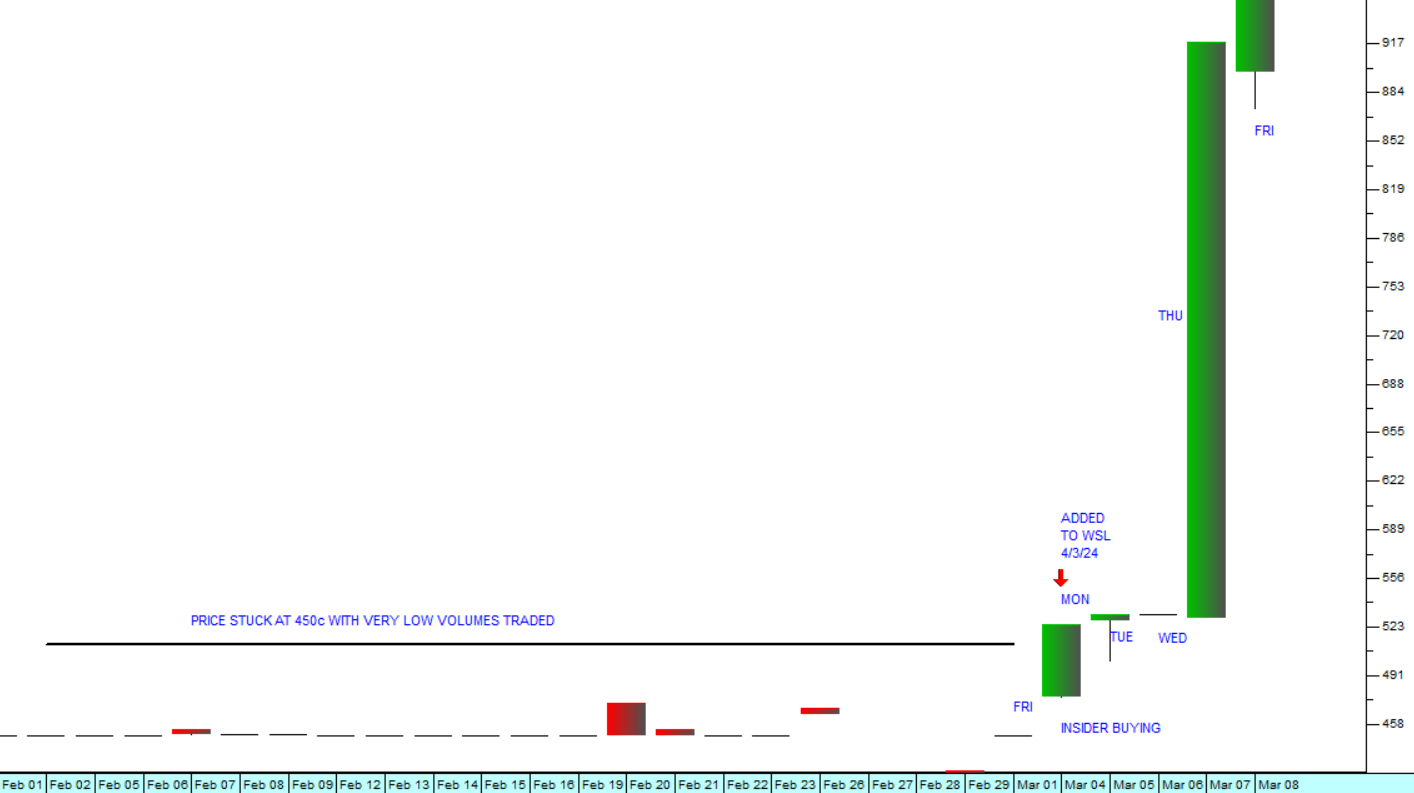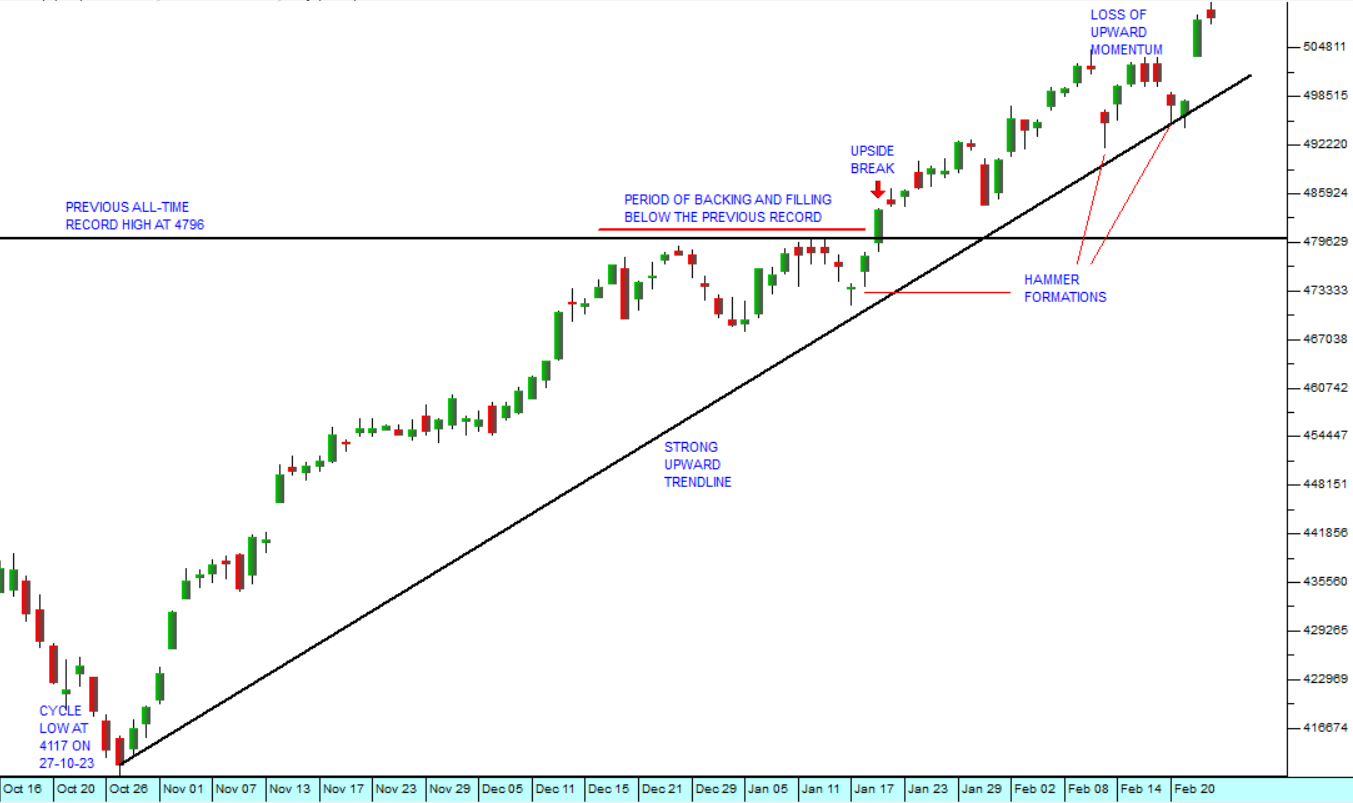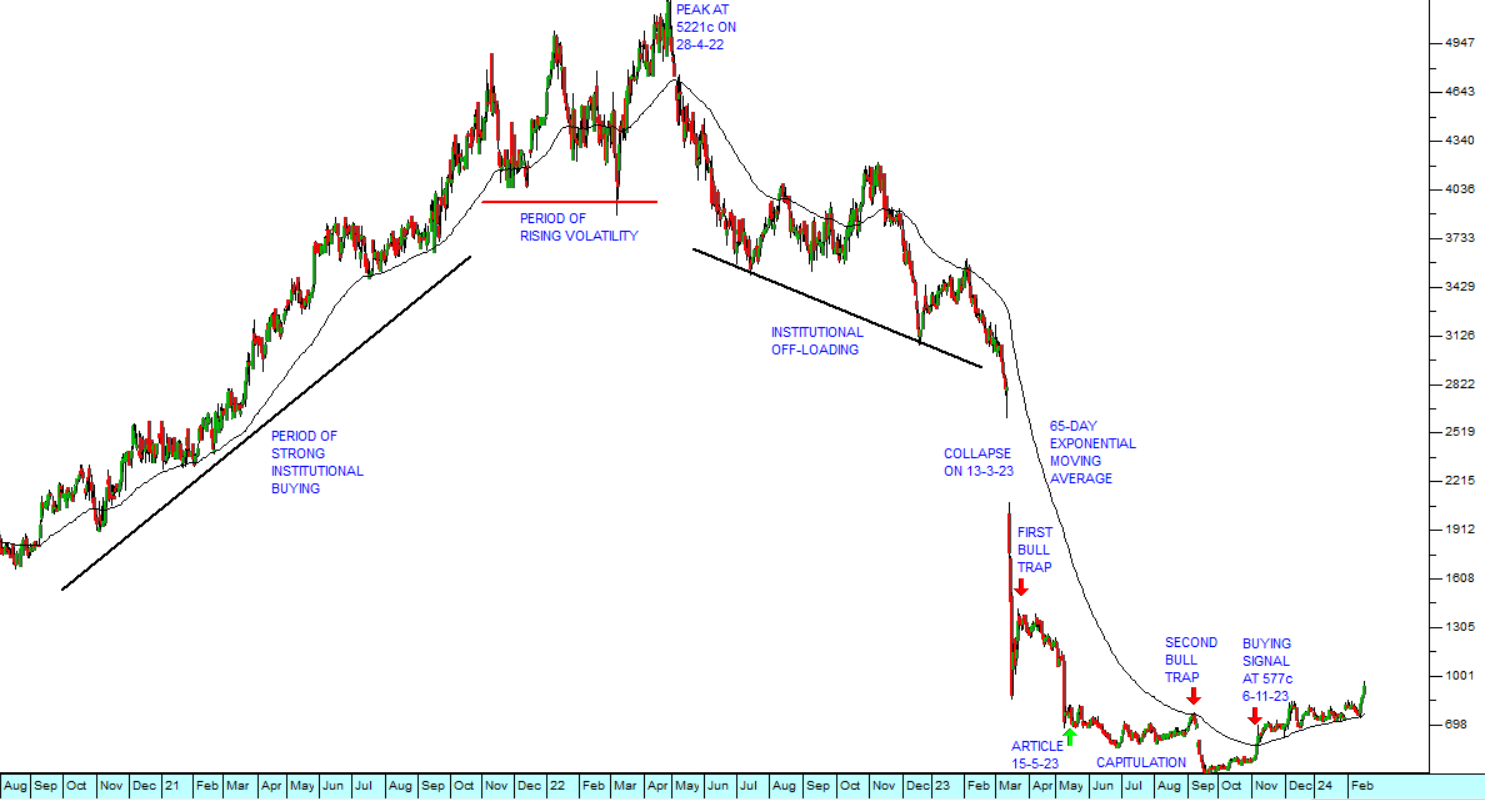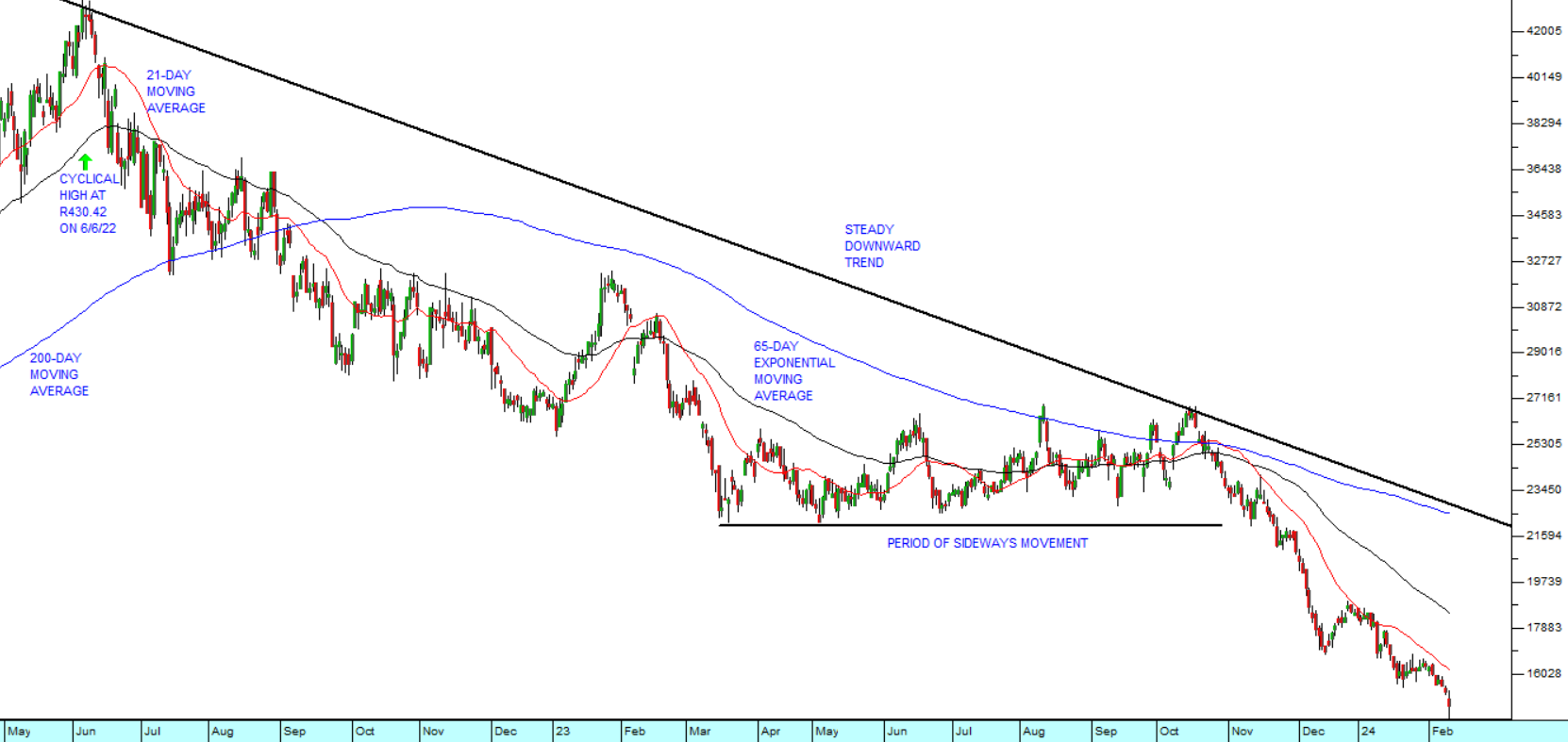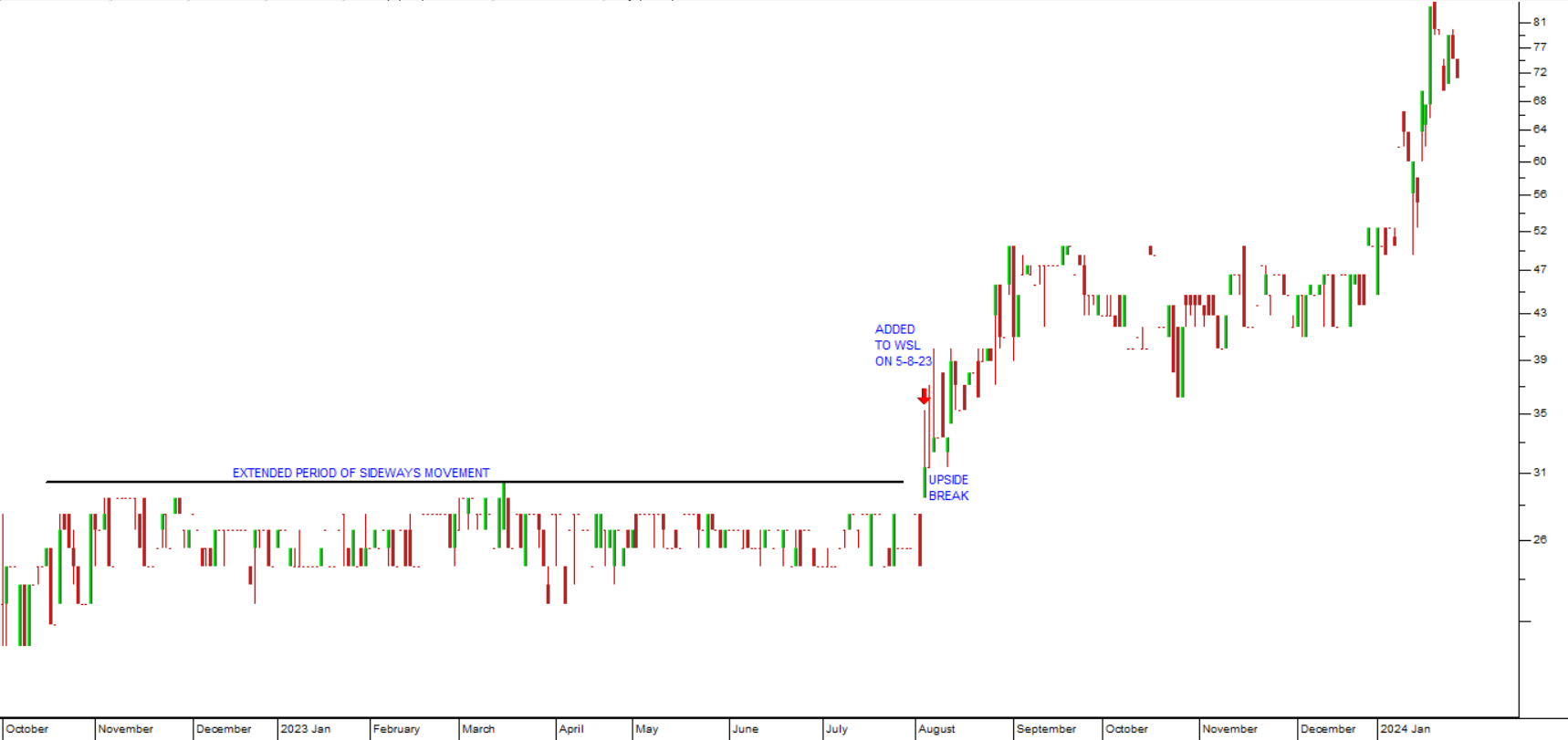TCP - Bad Debt Provision
15 May 2023 By PDSNETTransaction Capital (TCP) has fallen from grace.
A few weeks ago on 13th March 2023, the company issued a trading statement in which they disclosed to the investing public, for the first time, that they would have to significantly increase their provision for bad debts to R1,8bn because a large portion of their debtors’ book (R6,9bn) was, at the date of the balance sheet (31-3-2023), older than 90 days and was therefore potentially uncollectible. In 2022, TCP had a bad debt provision of just 4%. That has now suddenly had to be increased to a whopping 15%.
A provision is an expense based on a management estimate of an unknown future cost – in this case the proportion of its debtors’ book which would prove to be uncollectible. In any debtors’ book there will be a percentage of the book which will ultimately prove to be uncollectible. The rules of financial accounting require that management make an estimate of that and allow for it by way of a provision.
Clearly, TCP’s management did not adequately assess the impact of COVID-19 in 2020, the civil unrest in July 2021 and the Toyota factory shut down due to flooding in April 2022. The ability of their debtors to repay what they had borrowed was substantially impaired. Taxi owners were getting less fares and doing less trips than they needed to be profitable and many of them could no longer meet their monthly repayment obligations.
This resulted in TCP having to repossess many more taxis than usual, and in addition it became much more difficult to find suitable new owners. TCP accumulated a large stock of taxis which were worth far less than their book value. Beyond the increase in their bad debts provision, this required them to write off R150m in their financials for the six months to 31st March 2023.
TCP shareholders became aware that the taxi business had shrunk dramatically – resulting in a sharp fall in the share’s price.
In our article on 20th March 2023, Stopping out of Transaction Capital, we pointed out that the sudden revelation to investors in the SENS announcement of 13th March 2023 came after the share had been falling for more than a year – and that anyone with an established stop-loss strategy would have already sold out at better than 4000c per share. Clearly, the insiders had been aware of the impending problem for some time and had been quietly liquidating their positions.
Consider the chart:
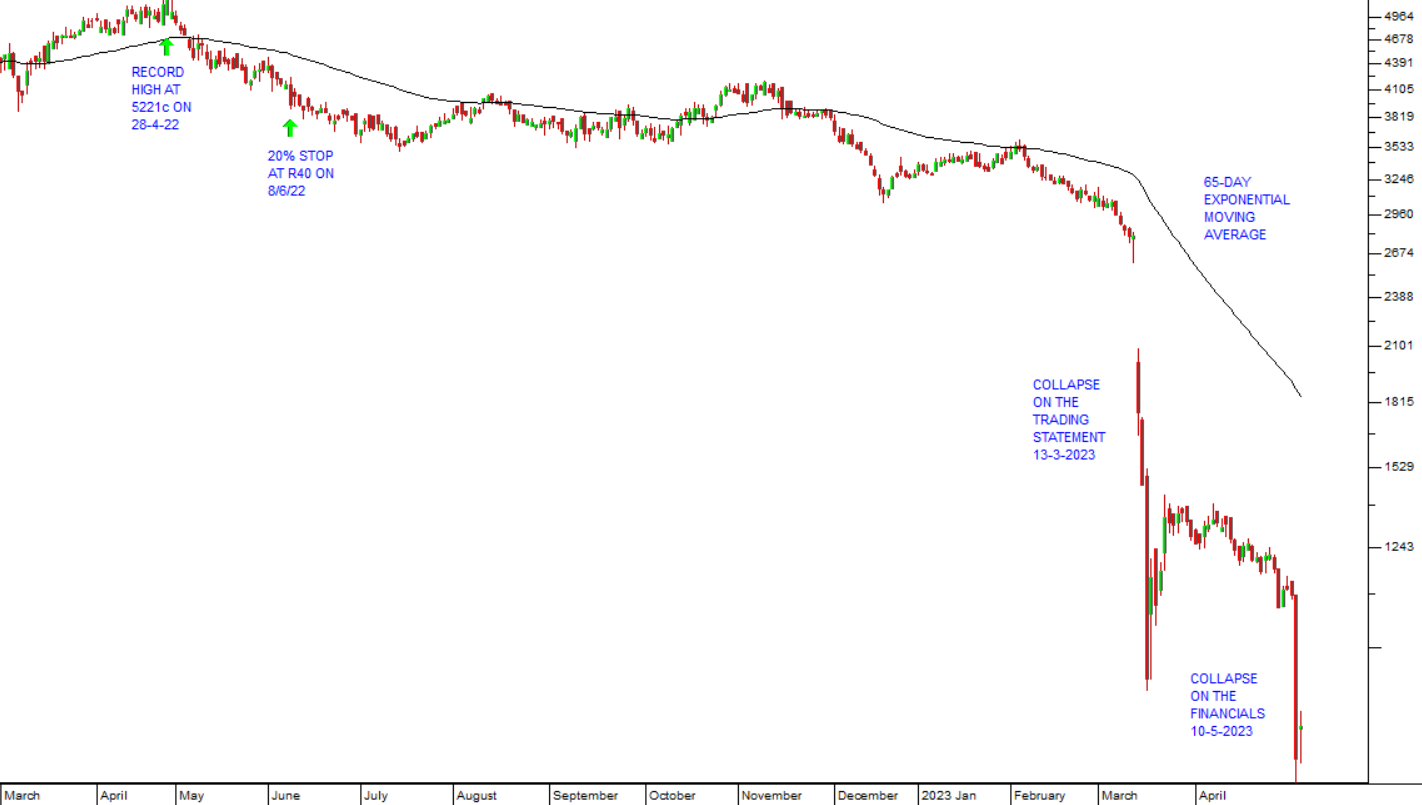
You can see here that TCP shares made an all-time record high at 5221c on 28th April 2022 and then began a long downward and sideways move which lasted for about a year. If you had a 20% stop, you should have sold out on 8th June 2022 at a price of 4000c.
But now that the share has collapsed to less than 800c, what should you be thinking? There is little doubt that the TCP business model is sound and will recover in time. It has a solid balance sheet and a good relationship with its financers. The business of taxis has taken a major hit, but there can be little doubt that it will continue to be a major part of the South African economy going forward. So, TCP will recover – the question now is, “When should you consider buying back in?”
In our experience, a sudden change in the perceived value of a quality share usually takes time to be fully discounted into the market. As you can see from the chart, the initial drop in the share’s price was followed by some buying by bargain hunters who pushed the share back up to around 1300c and it stayed there until the interim financials were published. Then it collapsed further – so that initial rally was clearly a “bull trap” - which is something you want to avoid.
One of the best technical mechanisms for staying out a share which is collapsing is to apply a 65-day exponentially smoothed moving average (65-day E) and wait for a clear break up before getting interested. You can see on the chart above the 65-day E would have prevented you from getting in too early and now indicates that there may be further downside.
Once again, the insiders will give you the signal. When their buying takes the share back up through the 65-day E it is probably worth considering again. Even then, however, you should be sure to establish a strict stop-loss level at which you will sell out.
Remember: The share market is not about certainties – it is about probabilities.
DISCLAIMER
All information and data contained within the PDSnet Articles is for informational purposes only. PDSnet makes no representations as to the accuracy, completeness, suitability, or validity, of any information, and shall not be liable for any errors, omissions, or any losses, injuries, or damages arising from its display or use. Information in the PDSnet Articles are based on the author’s opinion and experience and should not be considered professional financial investment advice. The ideas and strategies should never be used without first assessing your own personal and financial situation, or without consulting a financial professional. Thoughts and opinions will also change from time to time as more information is accumulated. PDSnet reserves the right to delete any comment or opinion for any reason.
Share this article:
